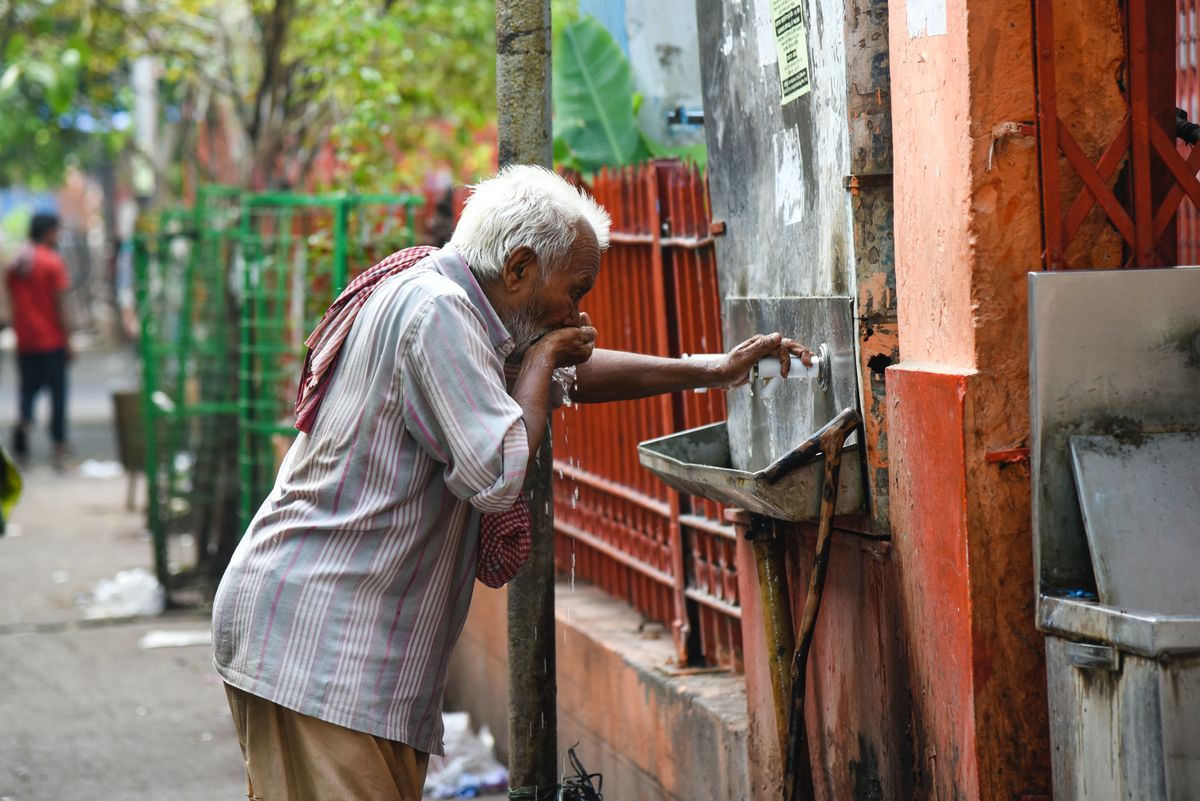The UN reports an “imminent” global water crisis
The overconsumption of water, pollution and climate change are still leading to water scarcity on a global scale.

A few minutes every morning is all you need.
Stay up to date on the world's Headlines and Human Stories. It's fun, it's factual, it's fluff-free.
The backstory: Back in 1977, the UN held its first and last water conference. The goal was to make a plan for achieving universal clean water access by 1990 and to avoid a water crisis. Since then, more and more people have gotten access to safe water and sanitation all over the world. That is, except in sub-Saharan Africa, where the number of people without safe drinking water has risen since 2000.
More recently: The overconsumption of water, pollution and climate change are still leading to water scarcity on a global scale. Seasonal water shortages are becoming a problem even where water isn't scarce. In 2015, the world set a 2030 target for universal clean water and sanitation. But, in 2020, about 2 billion people still needed safe drinking water in their homes. With how things are going, 1.6 billion people won't have safe drinking water at home by 2030.
The development: The UN is hosting its first conference on global water scarcity in almost 50 years starting Wednesday. Ahead of the meeting, the UN just released its World Water Development Report for 2023. The org has warned that we're dealing with an "imminent" international water crisis. According to Richard Connor, the report's lead author, about 10% of the world lives in areas with "high or critical water stress." We can look towards solutions like flood and pollution control, data sharing and co-financing environmental projects to solve this problem.
Key comments:
"Seasonal water scarcity will increase in regions where it is currently abundant — such as Central Africa, East Asia and parts of South America — and worsen in regions where water is already in short supply, such as the Middle East and the Sahara in Africa," the report said.
"There is enough water on the planet if we manage it more effectively than we have managed it over the last few decades," said the official host of the water conference, UN Under-Secretary-General Usha Rao Monari, to the BBC. "I think we will have to find new governance models, new finance models, new models of using water and reusing water than ever before. I think that technology and innovation will play a very large role in looking at how to manage the water sector and the use of water."
"We can't wait another 46 years because what is happening is just too awful at the moment, and it's going to get worse," said Rachael McDonnell, deputy director-general for research for development at the International Water Management Institute.
"Considering water as a commodity or a business opportunity will leave behind those that cannot access or afford the market prices," said a group of 18 UN independent experts and special reporters in a joint statement on Tuesday. "It is time to stop a technocratic approach to water and consider the ideas, knowledge and solutions of indigenous peoples and local communities who understand local aquatic ecosystems to ensure sustainability of the water agenda."




Comments ()